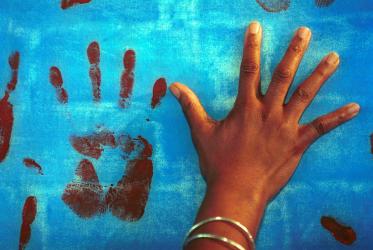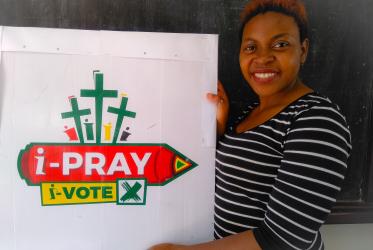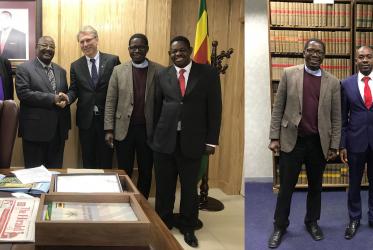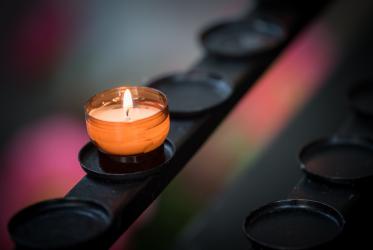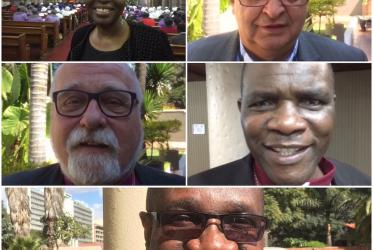Anzeigen von 1 - 20 von 22
Young Africans are eager to grapple with challenges
09 Januar 2020
Praying and voting goes together
11 Juli 2018
#WCC70: Kirchen als „Vermittler von Freiheit“
12 Februar 2018
#WCC70: Churches as “freedom agents”
12 Februar 2018
ÖRK-Exekutivausschuss kommentiert Situation in Simbabwe
22 November 2017
WCC Executive Committee comments on situation in Zimbabwe
22 November 2017
Voices from a solidarity visit to Zimbabwe
25 Mai 2017
New Executive Committee members elected in Trondheim
28 Juni 2016



